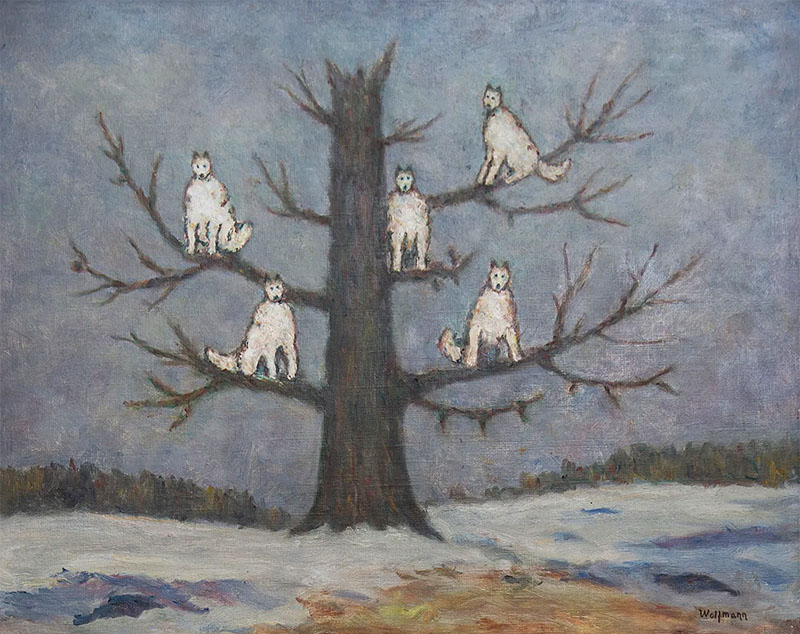Freud and the dream of the the Wolfman

This dream, is of course, one of the most well known in the history of psychoanalysis. It was in the interpretation of this dream the Freud said the patient had been traumatized by witnessing his parent’s sexual intercourse, and the dream was full of castration anxiety. This is, of course, a bit of a stretch, but it did open up the importance of dreams and their reflection of unconscious elements. More information on Freud’s interpretation can be found through the link at the bottom of the page to the Freud Museum in London. It’s a good website and worth reading more.
The interpretation of dreams is the royal road to a knowledge of the unconscious activities of the mind.
Sigmund Freud, The Interpretation of Dreams
Freud’s Patient Dreams:
I dreamt that it was night and that I was lying in bed. Suddenly, the window opened of its own accord, and I was terrified to see that some white wolves were sitting on a big walnut tree in front of the window. There were six or seven of them. The wolves were quite white, and had big tails and had their ears pricked like dogs when they pay attention to something. In great terror, evidently of being eaten up by the wolves, I screamed, and woke up.
[This dream was just before his patient’s fourth birthday]
